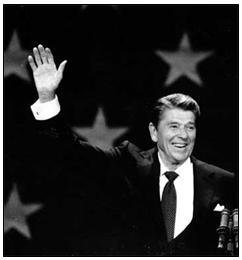By David Bozeman
According to the latest Democrat propaganda points, President Barack Obama is not out of the mainstream, he is simply standing on principle. Well, we can’t even give him that, at least not on the mosque controversy, as he now won’t back up his earlier statements in support of its construction. But they’re running with it, anyway.
When a conservative Republican takes an unpopular stand, he or she is just… unpopular. Democrats and the press loved quoting President George Bush’s basement-level approval numbers and slamming his hard-headedness for staying the course in Iraq long after the American people had soured on our presence there. But did anyone ever praise him for standing on principle?
In Obama’s defense, yes, presidents often do have to take unpopular stands. Acting in the best interests of America against the overwhelming tide of public opinion requires a strength of leadership not found in those who enter public life merely to be important people, as opposed to doing important things. Americans tend to understand this and other perils of the presidency.
Whether Obama is motivated by principle or narcissism matters little to the condition of this country (and he probably is motivated by some of both). But when a leader finds himself too frequently justifying his clashes with the majority of Americans, the question bears asking, whose side is he on?
In a mere twenty months since his inauguration, Obama has pushed through a hugely unpopular health care reform bill, he has sued Arizona for an anti-illegal immigration law supported by about 70% of American voters, and, against the wishes of Gulf states, he has enforced a moratorium on offshore drilling. And then we have his economic policies, considered a failure by more than half of all Americans, depending on the poll.
Which brings forth the other Democrat talking point: they now remind us that President Ronald Reagan, at the same point in his first term, was also burdened by soaring unemployment rates and dwindling poll numbers. Indeed, Reagan was not always popular even with his own base. He signed occasional tax increases into law, and, toward the end of his presidency, he stunned the conservative movement by making minor concessions to Gorbachev and appearing to make nice with the Soviet leader.
Occasional policy differences are part of the governing process, but love of freedom endures. Reagan staked his presidency on the belief that a cut in top marginal tax rates would spur economic growth and, in turn, job creation. Reagan consistently invested his faith in the American people as the source of economic growth and national greatness, unlike the current administration that has invested $13 trillion in debt, and nationalized entire segments of the private sector.
But true, at this point in 1982, many Americans disapproved of Reagan’s apparent failures, but not his principles and not his worldview. Unlike Reagan, Democrats today must explain away Barack Obama’s 20-year relationships with America-bashing preachers and home-grown terrorists. They cannot write an inspiring legacy on his partial term as a U.S. senator, with abysmally low and even single-digit ratings from the National Taxpayer’s Union, Americans for Tax Reform and the US Chamber of Commerce, contrasted with 100 percent ratings from the National Association of Government Contractors and — surprise, ACORN!
Barack Obama coasted to the presidency by playing rock star to a groupie media and on the good will of Americans who thought it was time to give a new guy a chance. Now, without George W. Bush as a whipping boy, Democrats must defend an agenda that, however principled, is far beyond America’s mainstream and is clearly not Reaganesque.
David Bozeman, former Libertarian Party Chairman, is a Liberty Features Syndicated writer.


